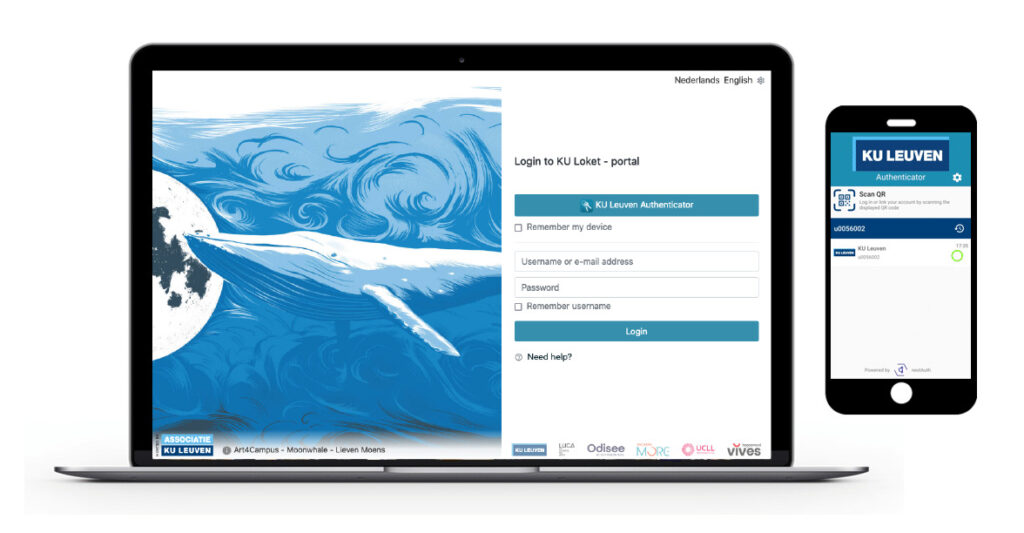KU Leuven is one of the world’s Top 100 universities comprising 6 institutions and 23 campuses across Flanders. Belgium’s largest and oldest university educates 115.000 students, employs 20.000 people and relies on 150.000 externals.
The 800-year-old institution has always been at the forefront of innovation and digitisation. Their 200.000+ users have been able to access KU Leuven’s resources, like its HR data, student grading system, research data, project proposals, etc., online for decades. These users relied on passwords and usernames to log in.
A change was needed
Philip Brusten, head of the university’s Competence Centre for Information Security, realised they needed a secure and frictionless authentication process to fend off the rising number of phishing attacks. “We wanted a highly secure two-factor authentication software solution to achieve strong user authentication. Due to the complex nature of our institution and the high number of users, the solution had to be easily implementable into our SSO solution and allow for fast user onboarding. Plus, it had to excel at user-friendliness. nextAuth gets top marks for all those requirements.”
Why the KU Leuven Chose nextAuth
Brusten and his colleagues chose to deploy nextAuth’s white-label app and worked closely with the Belgian mobile passwordless authentication provider to integrate it into their central login system. This resulted in the KU Leuven Authenticator app, which allows users to log in with biometric factors on their smartphone, backed up by a PIN code in case of biometric failure.
“The collaboration with nextAuth was a success. nextAuth has great expertise; we worked closely together during the implementation of the solution.” according to Brusten.
How KU Leuven Implemented Passwordless Authentication
The academic institution gradually rolled out the new authentication method. At first, passwordless authentication was optional but encouraged. After some time, they began enforcing mobile passwordless MFA. “Once people realised that 2FA is even simpler than a password, they embraced it,” confirms Leen Van Rentergem, manager of KU Leuven’s ICT services.
This success story is a testament to the university’s knack for innovation. Its staff recognised the need for a more secure and user-friendly authentication method. We were happy to provide them with our technology and processes.
Discover our mobile passwordless authentication
We can do the same for your organisation. Let’s discuss how you can make your authentication frictionless and secure with our mobile passwordless authentication SDK or a white-label app. Click here you’d like to know more about passwordless authentication, what its benefits are and how you can implement it.


